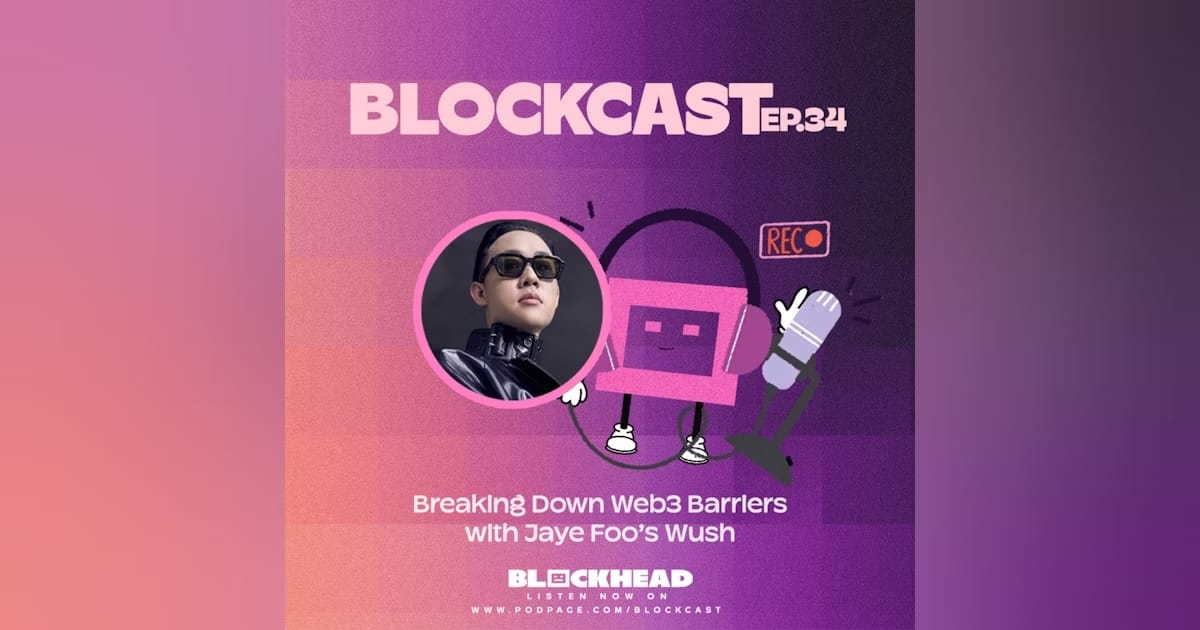Table of Contents
“If you look across all the industries, I think web3 is definitely something that’s on everyone’s mind. Institutions do need to get into this space, either from a technology or financial perspective”, Zhuling Chen, CEO and founder of blockchain infrastructure provider RockX, told Blockhead in a conversation about the institutional adoption of cryptocurrencies.
Describing his work in crypto as a “natural evolution,” Chen, who graduated with a masters of engineering from the Massachusetts Institution of Technology, is also the co founder of aelf – a Layer 1 blockchain based on cloud computing infrastructure.
In 2019, Chen founded RockX, a platform providing non-custodial staking and API access nodes to institutions and high net worth individuals, enabling them to earn yields from their crypto. In April 2022, RockX raised US$6 million in a funding round led by the Temasek-backed Amber Group, with Matrixport and Draper Dragon participating, pushing the company’s valuation to US$30 million. The platform currently has approximately US$400 million in assets under management.
For Chen, traditional institutions are underserved because crypto projects today are mostly retail facing, because the industry has been reluctant to educate institutions. He also believes that the industry is not an “either or” between institutions and retail investors, and that institutions have actually helped to accelerate the the industry, which is why institutional adoption is inevitable.
“If we look at the success of Bitcoin nowadays, it’s in fact driven by institutional acceptance. Particularly with regulations becoming clearer, family offices and banks have started to get into BTC,” he said.
However, Chen also believes that PoS Layer 1s will drive the next wave of institutional acceptance, partly because BTC has already been widely accepted. Chen also noted that institutions are more “patient” than retail investors, and when it comes to staking, institutions will have a vested interest in the long-term development of the network.
“They become more interested in the actual development of the blockchain itself. Because they feel they are they’re involved and empowered. And they’ll also be rewarded,” he said.
PoW vs PoS
When asked if PoS go against the ethos of decentralisation, Chen argued that the same can be said about PoW blockchains.
“If you look at all the hash rate [of bitcoin] globally, it’s pretty much controlled by the top ten mining pools. So if you look at it from this angle, PoS is probably more decentralised,” he explained.
Chen noted that while PoS networks were initially controlled by their respective foundations for security purposes, institutional participation will likely increase decentralisation for these networks.
“We believe that once institutions start to get more allocation from the foundation, or they start to be validators, it’s already one step ahead of making the blockchain at least slightly more decentralized, rather than them just trusting their foundation,” he said, adding that decentralisation is just “a process” that the industry will have to go through.
While Chen concedes that PoW is still “undisputed” and the “most secure way of doing it” when it comes to using crypto as a store of value, he believes that PoS is still more useful for the Internet when combined with smart contract technology.
“This is where blockchain goes beyond just payment or storage of value. This is where we make things programmable and efficient…If we’re looking for something that can fit into the Internet, PoS is probably the better option in this case, which Ethereum has demonstrated”, he said.
“We do see this trend that most of the blockchains will be more on PoS,” he concluded.









